Online tuition has redefined how learners access academic support. Instead of travelling to a tutor’s house or hosting lessons in the family dining room, students now log into video‐conferencing platforms and collaborate with expert tutors in real time. This digital format eliminates geographical barriers, tuition can be delivered from anywhere with a reliable internet connection. It also allows lessons to be recorded, paused and replayed, giving students an extra revision resource that simply doesn’t exist in a face‑to‑face session.
In this guide we explain how online tuition works, why it’s so effective and how RS Remote Tutoring’s proven methods have transformed students’ grades and confidence. We’ll cover the pros and cons compared with in‑person tutoring, the tools that power engaging virtual lessons and how to choose a great tutor. We also include real customer stories and answer common questions. By the end you’ll know whether online tutoring is right for your child and how to make the most of it.
Jump to Section
What Is Online Tuition?
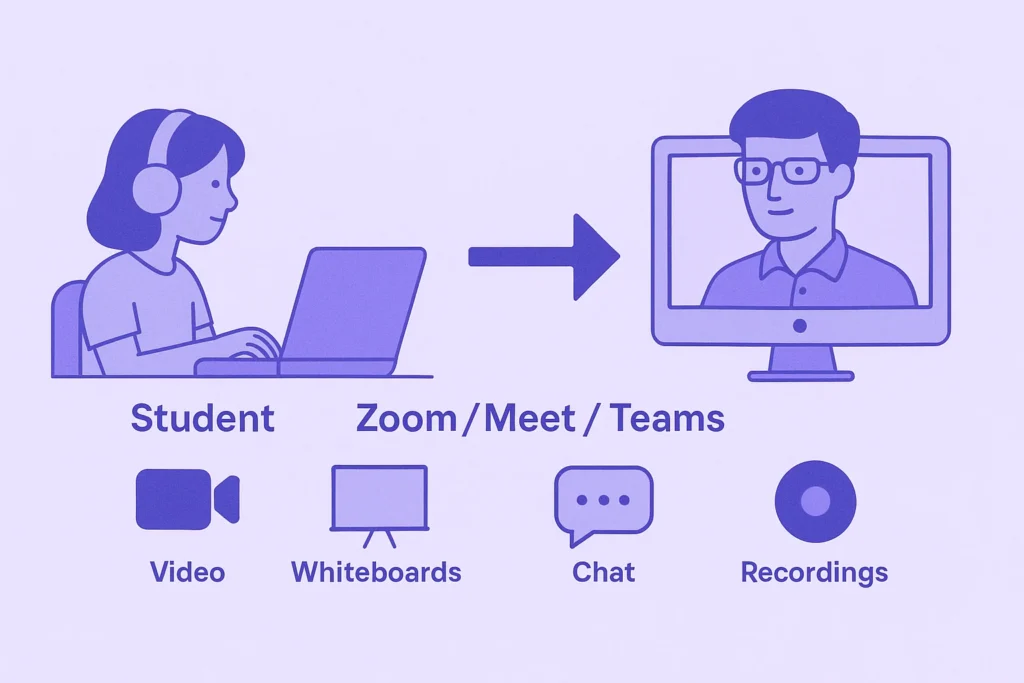
Online tuition is personalised instruction delivered via digital platforms. Lessons take place through video conferencing software such as Zoom, Google Meet or Microsoft Teams. According to the Education Endowment Foundation’s online tuition guidance, well-structured online learning can be just as effective as face-to-face sessions. Tutors share presentations, write on interactive whiteboards and send resources through chat features. This setup keeps students and tutors connected as if they were in the same room, while eliminating travel time and opening up access to a wider pool of tutors.
A good virtual lesson uses:
- High‑definition video and audio so the tutor and student can see and hear clearly.
- Screen sharing and virtual whiteboards for demonstrations, worked examples and diagrams.
- Breakout rooms and chat functions to support group lessons or one‑to‑one discussion.
- Session recording (when both parties consent) so the student can rewatch tricky explanations later.
This combination makes online tutoring interactive, flexible and highly effective for a range of age groups.
Benefits of Online Tuition
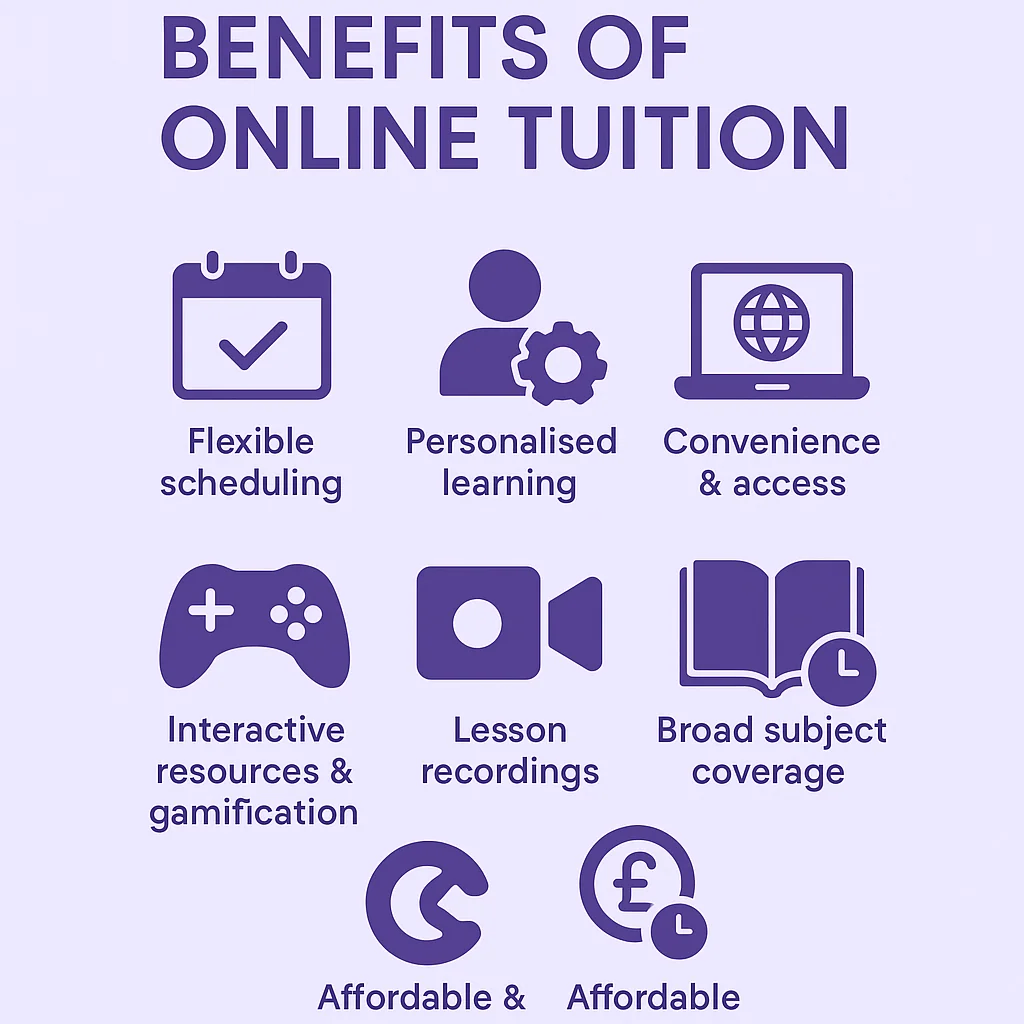
1. Flexible scheduling and global choice
Traditional tutoring restricts students to tutors within driving distance, whereas online tuition provides access to subject specialists from all over the country. Lessons can be scheduled outside school hours and across time zones. This makes it easier to find a tutor who fits your child’s needs and your family’s routine. Government resources on online education also highlight how digital learning improves accessibility, especially for families in rural areas or with busy schedules.
2. Highly personalised learning
Online tutors can design lessons to target specific gaps in knowledge or stretch students beyond the school curriculum. Because tuition is one‑to‑one or in small groups, the tutor adapts the pace and style to suit the individual learner. Visual, auditory and kinaesthetic teaching methods can be combined using digital tools.
3. Better access and convenience
Online tuition removes the need for travel for students. It provide learning in a familiar, comfortable environment at home. For families in rural areas or busy schedules, this offers a convenience which makes it easier to commit to regular classes and lessons. It also reduce the late cancellations which happens due to traffic or illness.
4. Interactive resources and gamification
Digital platforms allow tutors to incorporate quizzes, polls, educational games and interactive whiteboards into lessons. Studies have shown that gamified learning increases motivation and retention. Tools like Quizlet and other online quizzes can test knowledge in a fun way, while digital whiteboards let students work through problems together.
5. Session recordings and progress tracking
When lessons are recorded (with consent), students can revisit explanations at their own pace. Parents can also watch and understand what their child is learning. In addition, many tutoring platforms integrate progress‑tracking dashboards, allowing tutors to monitor improvement and tailor future lessons accordingly.
6. Broad subject coverage
Online tutoring isn’t limited to core subjects like Maths and English. Students can access support for sciences, humanities, modern languages, coding and even music lessons (e.g., guitar tuition online). Our tutors are qualified teachers and experienced subject specialists who can teach up to A‑level and beyond.
7. Affordable and time‑efficient
By removing travel time and allowing tutors to teach from home, online tuition can be more cost‑effective than in‑person lessons. Families save on petrol or public transport costs. Many providers (including RS Remote Tutoring) offer group classes at reduced rates, giving students high‑quality instruction for a lower per‑lesson price.
Online vs In‑Person Tutoring: A Balanced Comparison
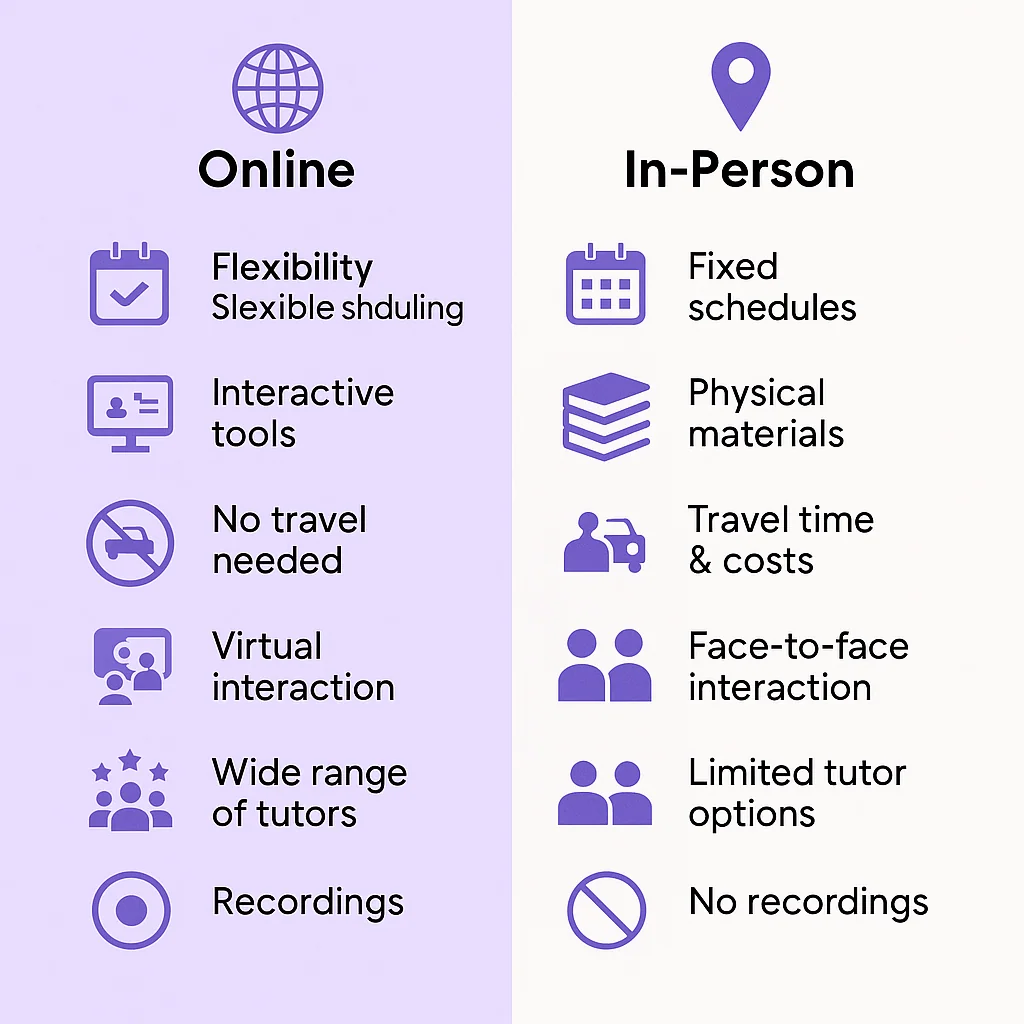
| Aspect | Online tutoring | In‑person tutoring |
|---|---|---|
| Accessibility | Accessible from anywhere with internet, removing geographic barriers | Limited to tutors within a local area. |
| Flexibility | Highly flexible scheduling across time zones | Requires fixed schedules and travel. |
| Resources | Uses digital tools like interactive whiteboards and session recordings. | Relies on physical materials; no recordings. |
| Travel & Cost | No travel required; often cheaper and time‑efficient. | Travel time adds cost and limits lesson length. |
| Personal interaction | Virtual interactions can feel less personal; requires good internet & tech skills. | Face‑to‑face interaction fosters rapport but limits choice. |
| Choice of tutors | Large pool of subject specialists worldwide. | Restricted to nearby tutors. |
| Lesson recordings | Sessions can be recorded, giving students a powerful revision tool. | No recorded lessons; relies on notes taken during the session. |
To sumup the comparison, we get to know that online tuition offer greater accessibility, flexibility and resource variety, whereas face‑to‑face tuition may feel more personal. Choosing between two depends on the child needs and parents preferences. Many of our students families start with online lessons and never look back because of the convenience and results they get without traveling obviously.
Tools and Technologies That Power Online Lessons
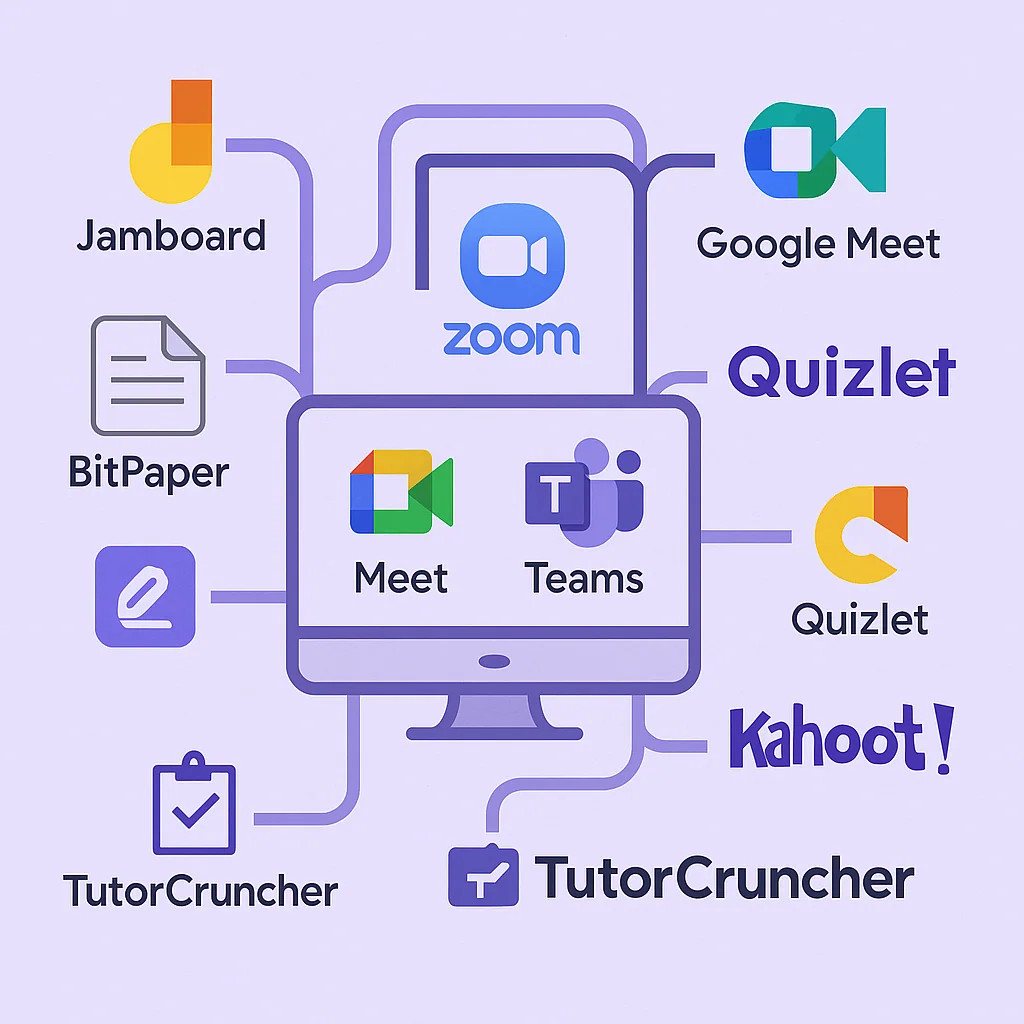
Video conferencing and virtual classrooms
Famous Platforms such as Zoom, Google Meet and Microsoft Teams helps alot and are the backbone of online tutoring. These platforms enable real time communication with HD quality video and audio. Tutors online can screen share their screens, share presentations, annotate on slides and use breakout rooms for collaborative exercises.
Interactive whiteboards and collaboration tools
Digital whiteboards allow tutors and students to write and draw simultaneously. Our tutors use a variety of tools:
- Classroomscreen: A versatile whiteboard for diagrams, maths problems and language exercises.
- BitPaper: An advanced collaborative board with handwriting and graphing tools.
- Google Jamboard & Miro: Best for brainstorming and group activities.
These tools help students visualise concepts and maintain a record of each lesson’s notes. As Edutopia explains, integrating digital tools into classrooms increases engagement and long-term knowledge retention.
Gamified learning platforms
Educational games and quizzes keep learners engaged. Platforms such as Quizlet allow tutors to build custom flashcards and quizzes. Kahoot! provides live multiple‑choice quizzes that turn revision into a friendly competition. Gamification encourages active participation and improves long‑term retention.
Learning management and scheduling systems
Behind the scenes, tutor management systems streamline lesson scheduling, payment processing and communication. At RS Remote Tutoring we use TutorCruncher, a robust platform that automates reminders, tracks student progress and provides parents with transparent lesson reports. This frees our tutors to focus on teaching, while ensuring sessions run smoothly and on time.
Choosing the Right Online Tutor
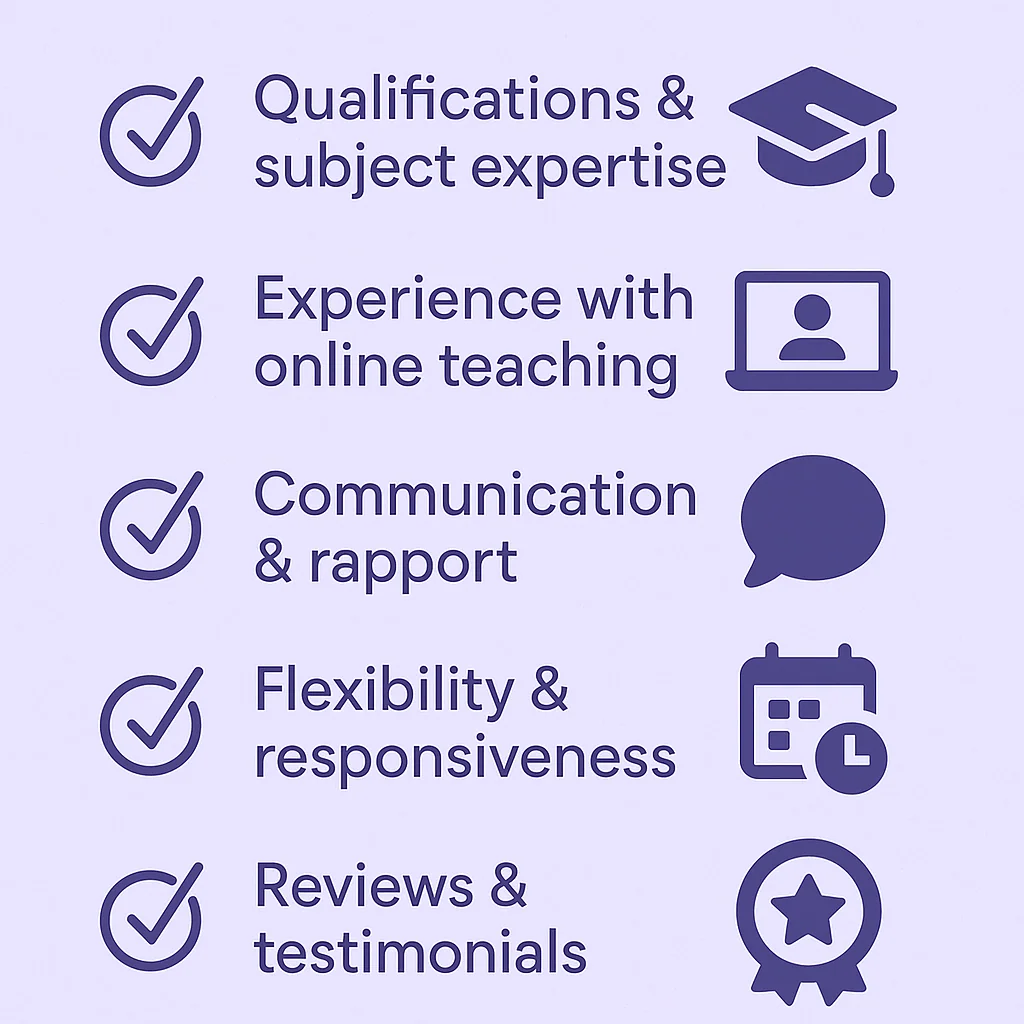
Finding a good tutor which matches your child needs is crucial. We suggest to consider the following factors while looking for an online tutor:
- Qualifications and subject expertise: Always look for tutors with a proven background, experience and subject knowledge relevant to the child goals. Our tutors include qualified teachers, examiners and high achievers in their fields.
- Experience with online teaching tools: Effective online tutor are proficient with digital platforms, virtual whiteboards and collaborative software. They adapt their teaching to suit each learner preferred learning style.
- Communication and rapport: Good tutor will explain concepts clearly, answer all questions patiently & build a positive relationship with each student.
- Flexibility and responsiveness: Look for tutors who adjust lesson plans as the student progresses, offer extra support before exams and respond to messages quickly. Like at RS Remote Tutoring, we offers flexible scheduling and quick communication via email and app.
- Reviews and testimonials: Always search and read client feedback to determine a tutor reliability and impact. Our Google Business profile and Bark Profile show many five star reviews from parents and students who have seen significant grade improvements and newfound confidence.
Questions to ask before hiring an online tutor
- What qualifications and experience do you have in the subject?
- How do you tailor lessons to a student’s learning style?
- What technology and resources do you use during lessons?
- How do you measure progress and provide feedback?
- What happens if we need to reschedule or cancel a lesson?
If a tutor is transparent and addresses these questions confidently, they’re likely a good fit.
RS Remote Tutoring – Our Difference
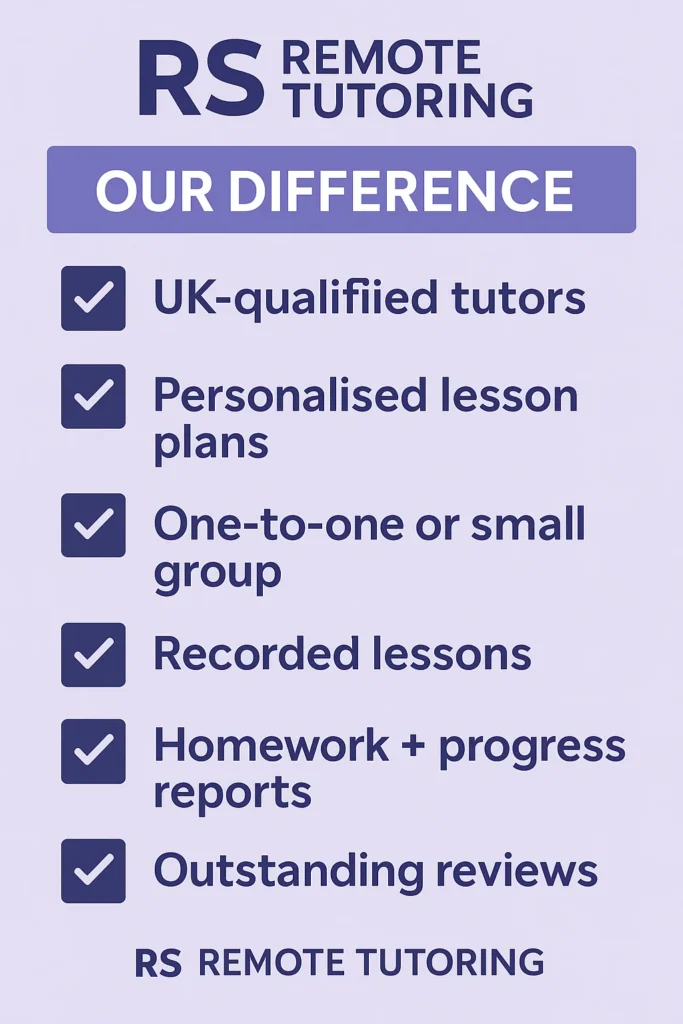
At RS Remote Tutoring we’ve built a reputation for excellence in online education. Here’s what makes us stand out:
- UK‑qualified tutors: Our team comprises experienced teachers and subject specialists. They hold QTS (Qualified Teacher Status) or equivalent degrees and have years of classroom and tutoring experience.
- Personalised lesson plans: We assess each student’s strengths, weaknesses and learning objectives, then design a bespoke programme to achieve their goals.
- Small group classes and one‑to‑one lessons: Students can join interactive group courses for GCSE and A‑level, or book private sessions for targeted support. Group sizes are capped to maintain high engagement.
- Recorded lessons: All our online sessions are recorded (with consent) so students can revisit tricky topics or revise closer to exam time.
- Homework and feedback: After each lesson, tutors set homework tasks and provide detailed feedback. Progress reports are shared regularly via our learning management system.
- Outstanding results and reviews: Our learners have achieved significant grade improvements and gained confidence in subjects they once found challenging. Parents frequently mention our tutors’ patience, professionalism and ability to make learning enjoyable. (Check our Google Reviews and Bark profile for testimonials.)
- Flexible packages: We offer pay‑as‑you‑go sessions, monthly plans and discounted class bundles. There are no hidden fees or long‑term contracts.
Ready to see the difference personalised online tutoring can make? Contact us for a free consultation or to book a trial lesson. Let’s help your child achieve their full potential.
Tips to Make the Most of Online Tuition
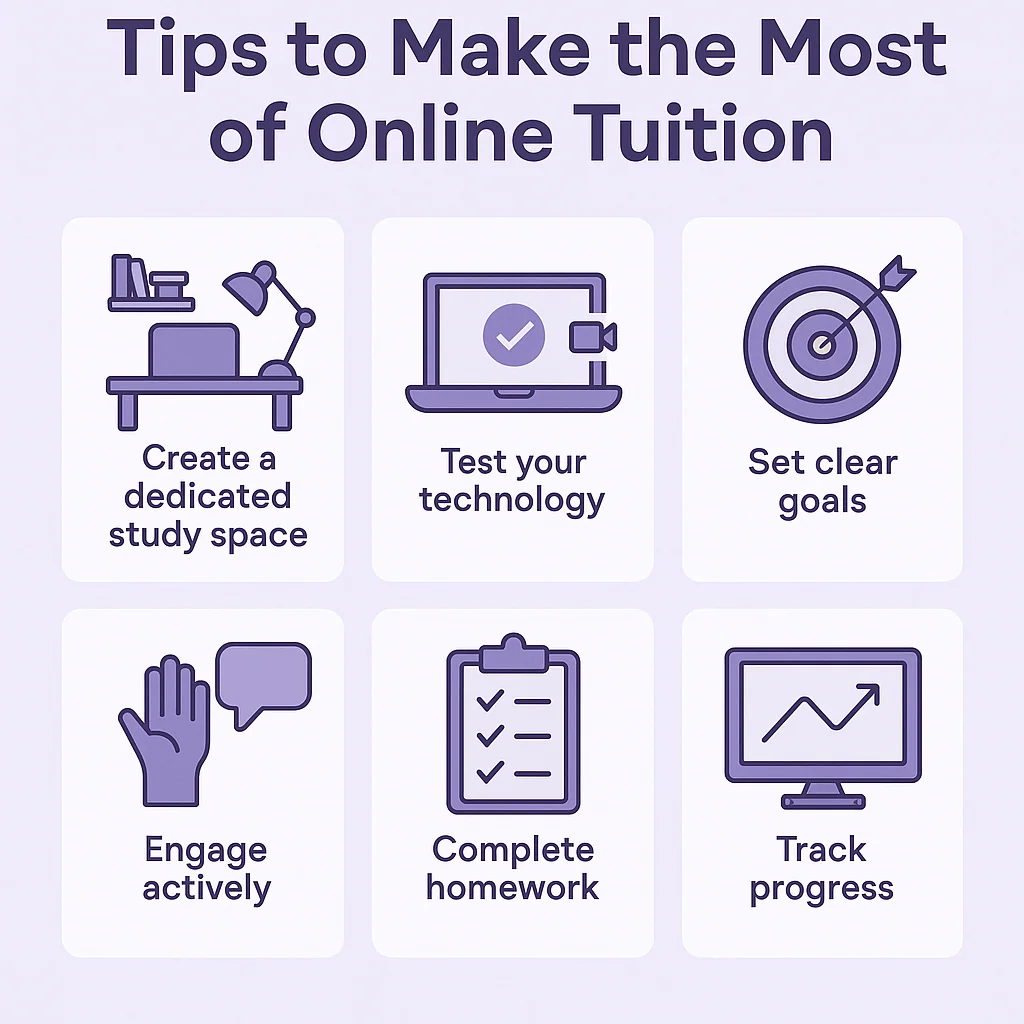
To maximise the impact of online lessons, we recommend:
- Create a dedicated study space: A quiet, clutter‑free area with good lighting and minimal distractions. Keep all study materials and devices charged and ready.
- Test your technology: Check internet speed, camera, microphone and headphones before each session. Have a backup device or mobile hotspot in case of connection issues.
- Set clear goals: Discuss with your tutor what you want to achieve (e.g., master a topic, prepare for an exam or improve grades). Clear objectives help tutors plan effective lessons.
- Engage actively: Encourage your child to ask questions, take notes and summarise what they’ve learned. Active participation improves retention and builds confidence.
- Complete homework and practice regularly: Consistent practice between sessions consolidates learning. Our tutors provide tailored homework with feedback to reinforce understanding.
- Track progress: Review lesson notes and progress reports together. Celebrate improvements and address any persistent challenges promptly.
Frequently Asked Questions
Is online tuition suitable for young children?
Yes. Many of our pupils begin from Year 2 or 3. Tutors use interactive activities, games and digital whiteboards to hold younger learners’ attention. Session length may be shorter (30–45 minutes) to suit their concentration spans.
How does online tutoring work for group classes?
Group classes bring together students of similar ability and learning goals. Lessons follow a structured syllabus, and tutors use breakout rooms for individual questions. Students benefit from peer interaction and collaborative activities while still receiving personalised feedback.
Which devices and software do I need?
A laptop or tablet with a camera and microphone works best. A stable internet connection (10 Mbps or higher) is essential. We use platforms such as Zoom and Google Meet, which are free to download and easy to use.
Can online tutoring help with exam preparation?
Absolutely. Our tutors specialise in GCSE, IGCSE and A‑level exam preparation. They cover exam specifications, teach exam techniques and provide practice papers with detailed feedback. Many of our students improve by at least one grade after attending our online revision courses.
How do I know if my child is making progress?
We provide regular progress reports outlining topics covered, strengths, areas for improvement and homework feedback. Session recordings allow parents to see exactly what was taught. Students often report increased confidence and improved school results within a few weeks of starting lessons.
Conclusion
Online tuition offers unparalleled flexibility, accessibility and personalised support. With the right tutor and tools, students can overcome learning gaps, excel in exams and develop a lifelong love of learning. RS Remote Tutoring combines expert teachers, engaging technology and a student‑centred approach to deliver outstanding results. Our 4.9/5 ratings on Google and Bark reflect the trust families place in us.
If you’re ready to empower your child with flexible, personalized learning, get in touch today. We look forward to helping your family thrive.

Raja specializes in Physics and Maths, with over 5 years of experience. He offers KS2, KS3, and GCSE Science and Maths lessons. He graduated from one of the top universities in the UK.

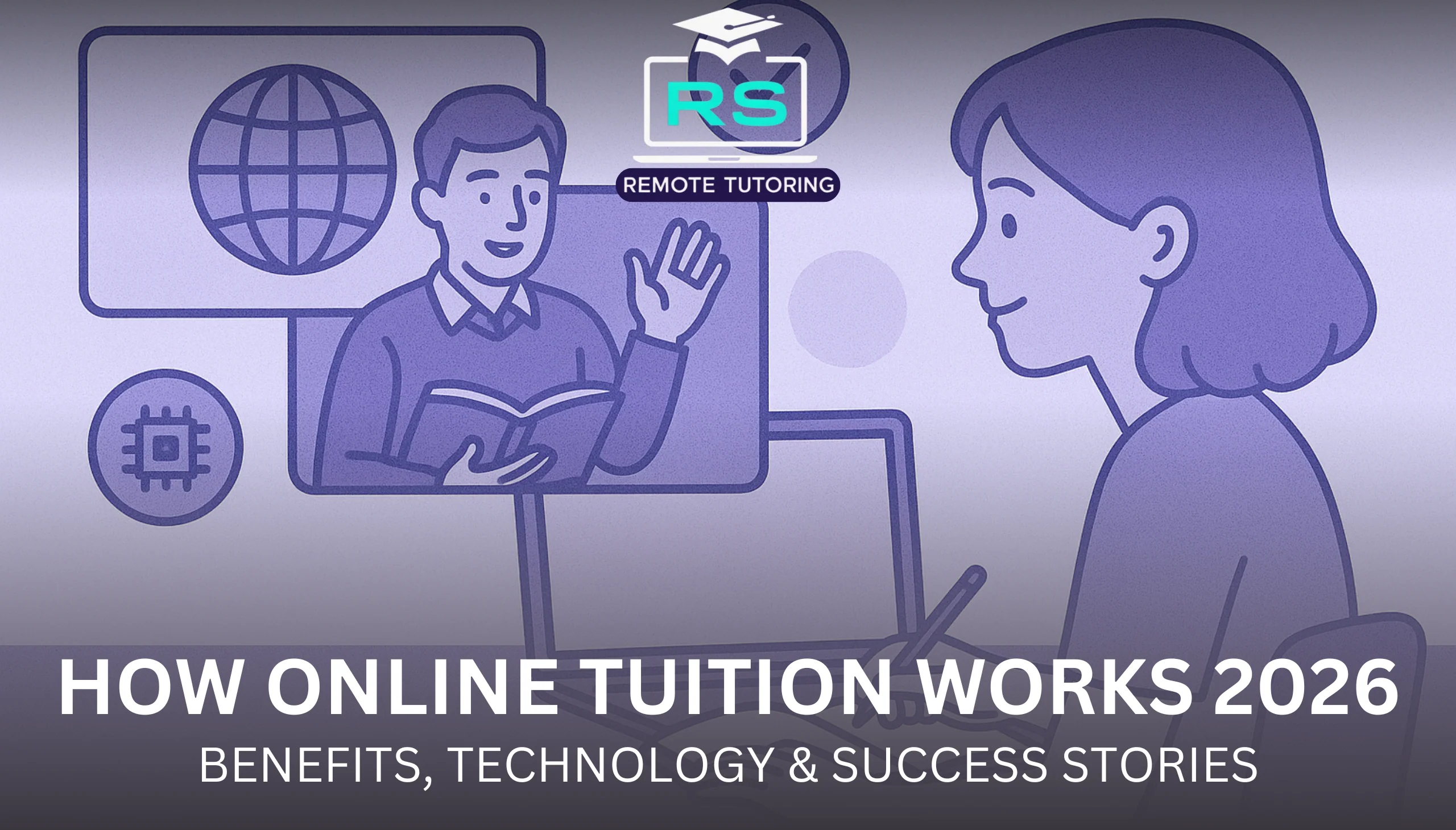
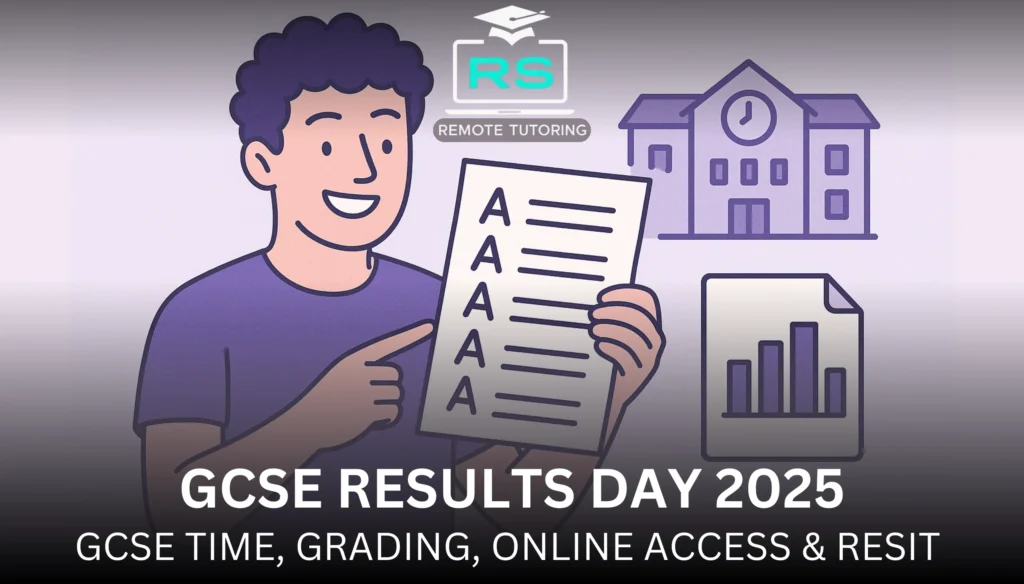
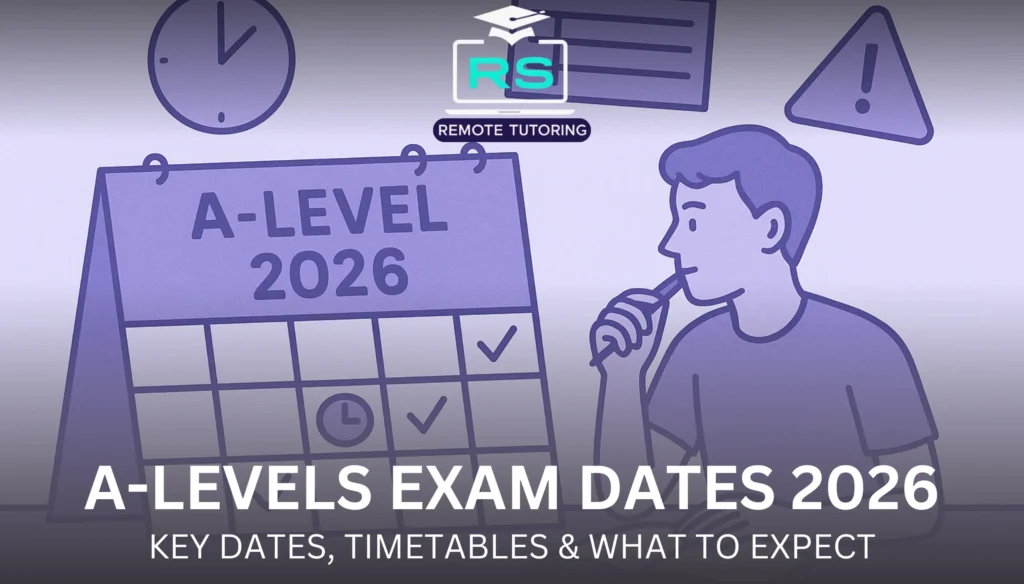
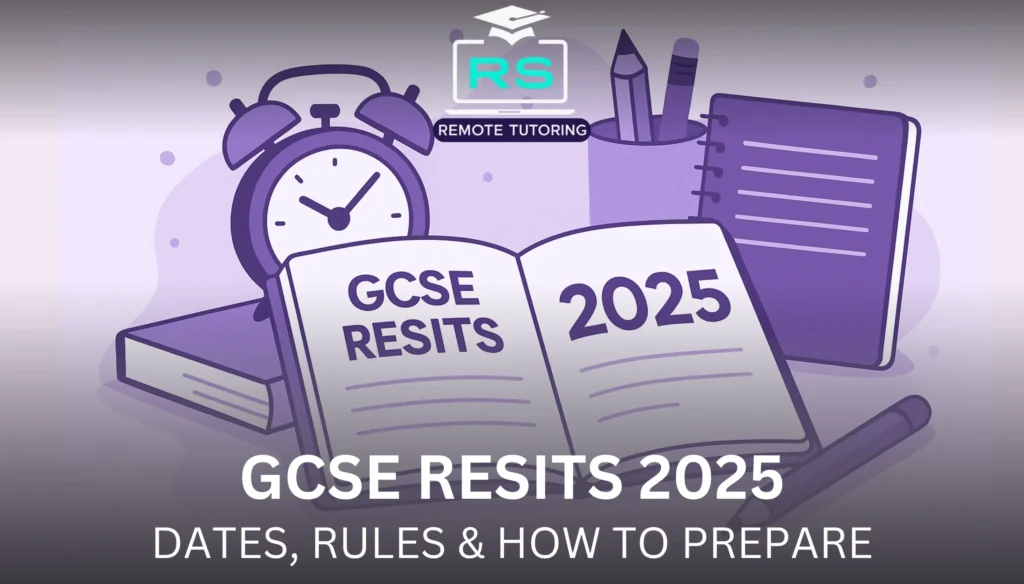
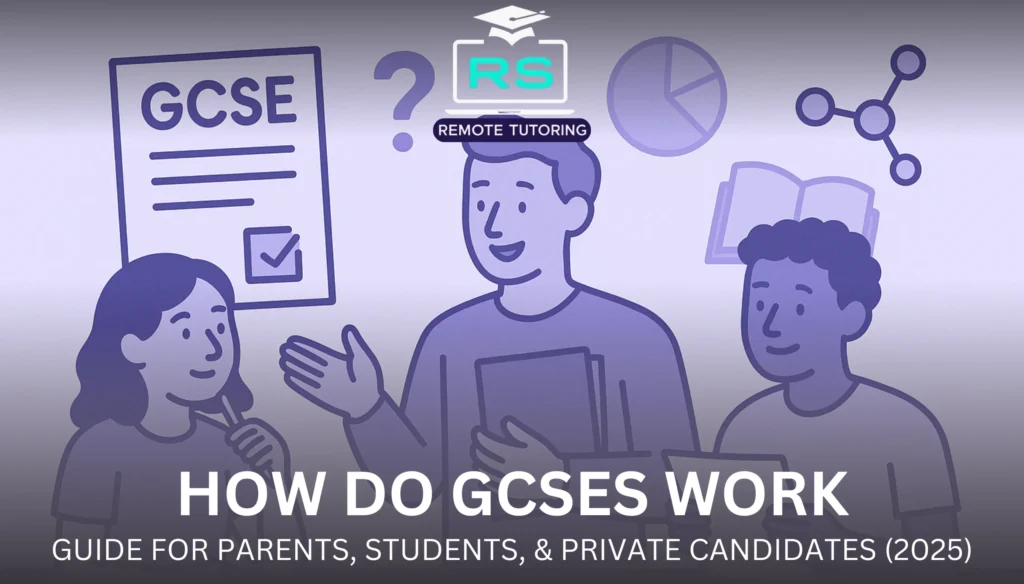
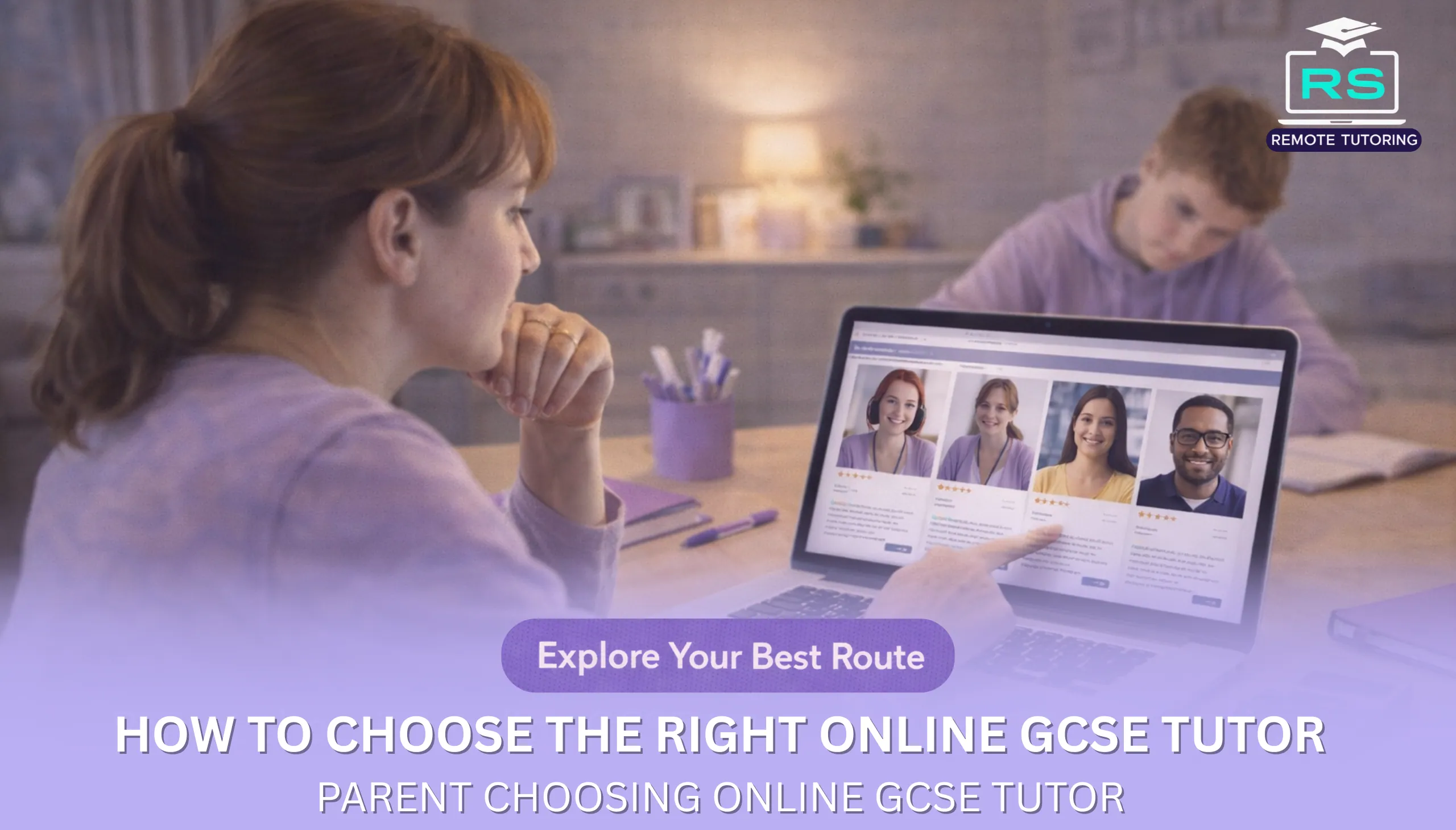
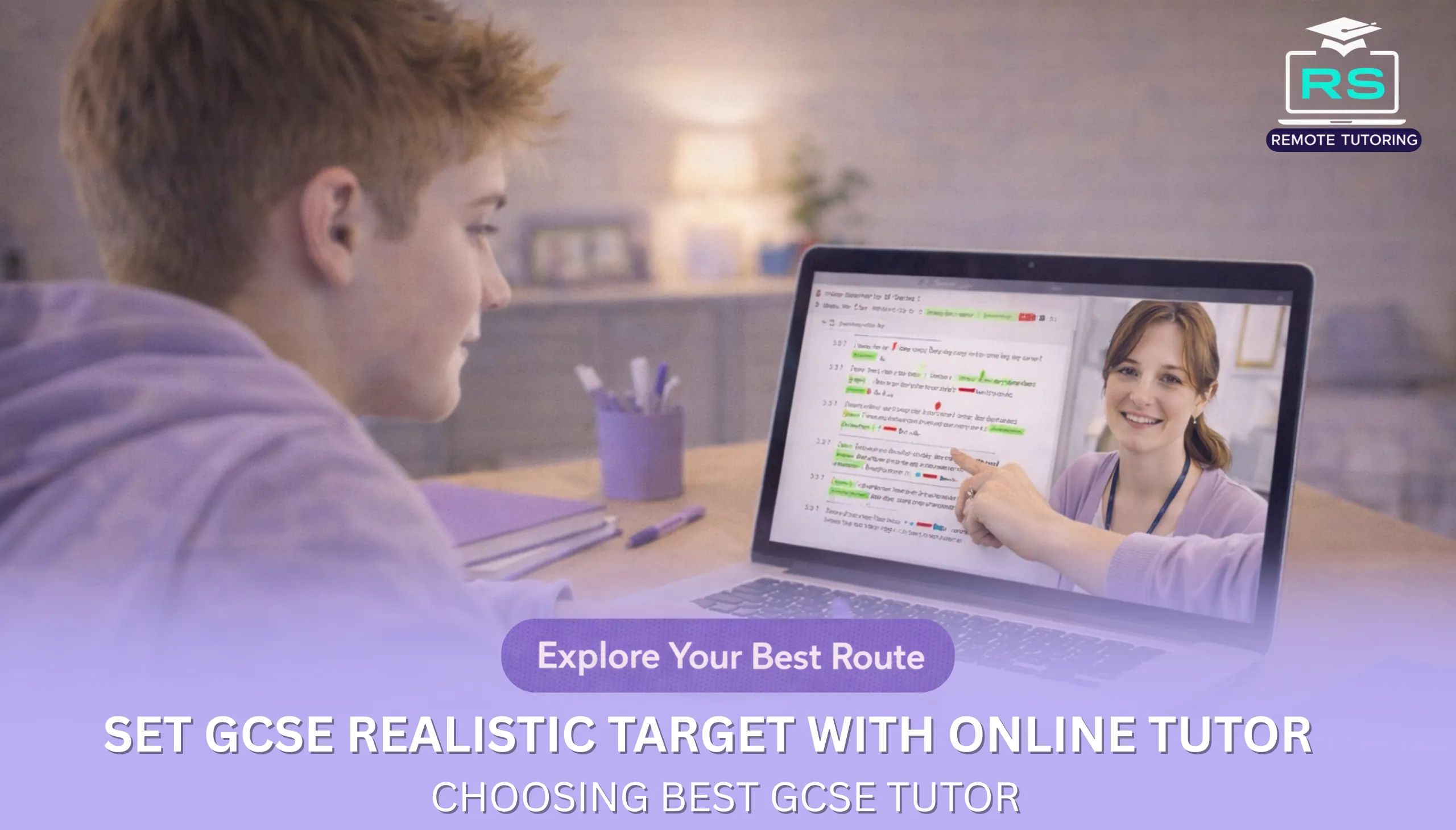


1 Comment
[…] spring, millions of pupils across the UK prepare to sit their General Certificate of Secondary Education (GCSE) exams. These tests mark the culmination of Key Stage 4 and open the door to sixth‑form study, […]